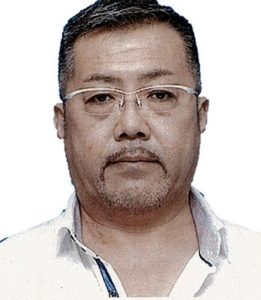
The Osaka District Court has handed a 10-year prison sentence to Hikaru Morikawa, a pivotal figure in an African-based fraud ring that targeted Japanese individuals, as reported by Mainichi Broadcasting System.
Morikawa, aged 60, was brought back from Ghana in August last year for defrauding over 30 Japanese victims, amassing at least 110 million yen. He utilized various online personas, posing as an American writer or a UN official, to perpetrate the scam.
Operating within a group engaged in “International Romance Fraud” from 2017 to 2021, Morikawa deceived victims by feigning romantic involvement. He would manipulate victims with affectionate communication before coercing them to send funds under false pretenses, such as covering fictitious customs fees for supposedly shipped jewelry.
During the trial, Morikawa vehemently denied the accusations, claiming the non-existence of any victims and stating, “I don’t know anything. I was not involved in any way.”
The prosecution sought a 15-year imprisonment term, highlighting Morikawa’s pivotal role in collecting defrauded funds for the ring and receiving 5 percent as compensation.
In the sentencing, the judge condemned Morikawa’s exploitation of victims’ emotions, terming it “despicable.” Financially, the impact was substantial, with victims losing sums ranging from several million yen to over 20 million yen, alongside significant psychological distress caused by the manipulation of their romantic feelings.
Morikawa’s background revealed a once well-off family, but he experienced a troubled youth before achieving success in real estate. However, due to the global financial crisis, he lost everything and eventually ended up in Ghana, where he became involved with the fraudulent ring.
Reportedly, Morikawa played a key role within the ring that defrauded a total of approximately 390 million yen from 65 Japanese victims. Authorities have arrested eight Japanese individuals involved in the ring.
Additionally, eight local Ghanaians, including Nana Kofi Boateng, dubbed “The Blue Kofi,” took part in the criminal activities. Boateng is currently evading authorities and is believed to be heading to the United States.
The case, covered in the weekly tabloid Shukan Post, sparked interest in non-fiction writer Takehide Mizutani, who interviewed Morikawa in May at the Osaka Detention Center. Mizutani’s subsequent book, “Report: International Romance Fraud,” shed light on Morikawa’s perspective, where he continued to deny his involvement and downplay the defrauded amount.
Experts noted a surge in such fraud cases amid the COVID-19 pandemic, with Morikawa’s case exposing the organized engagement of Japanese nationals in such crimes for the first time.
The trial involved 32 out of 65 victims, consisting of men and women aged 40 to 65. Each victim transferred amounts ranging from approximately 100,000 yen to 23 million yen.
Morikawa, despite the details presented, remained steadfast in maintaining his innocence, claiming ignorance of the specifics of the fraud or the interactions between perpetrators and victims.
Belinda Smith, a professor at the University of Ghana’s Department of Sociology, highlighted that many Ghanaian culprits are young individuals facing bleak prospects, often turning to crime due to limited opportunities.
 GhArticles.com Every News in Detail
GhArticles.com Every News in Detail


